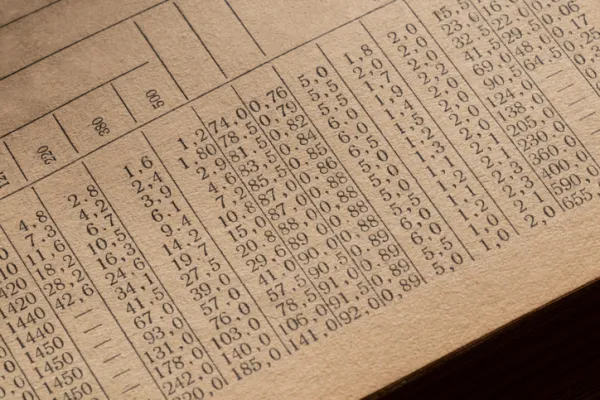Nothing will be the same again in the Middle East.
Start with the political landscape. The coalition led by the U.S. and the U.K. attacked Iraq with the intention of ousting Saddam Hussein from power and instigating a broader wave of democratization in the Middle East. The result of the conflict, assuming a victory for the coalition, may be an unanticipated regime change: the increasing alienation from the U.S. of governments throughout the region, and perhaps even the fall of pro-Western regimes.
Consider the impact of the recent, peaceful change in Turkey. Its newly elected Islamic-oriented government refused to allow the U.S. to open a northern front from Turkish soil, complicating war efforts.
Coups or power struggles in the region are not necessarily imminent, but tensions are clearly rising in a number of countries. Demonstrations have shaken the capitals of several Arab nations. Several people were shot and killed in Cairo. Nearly a million Moroccans marched in Casablanca against the war to protest their government's quiet support for the U.S.-led action. The Saudi regime has never appeared more confused or confusing, sending many mixed signals -- first opposing the war, then offering to support it if the United Nations sanctioned it, then officially refusing to allow U.S. land forces to station themselves on Saudi territory, only to be embarrassed by a story in The New York Times that revealed that up to 7,000 American military personnel were manning command posts in several of the kingdom's military airports.
By far the most vulnerable government in the region is that of King Abdullah of Jordan. The Palestinians who make up 70 percent of Jordan's population are angry at the treatment by Israeli occupation forces of their fellow countrymen in the nearby West Bank of the Jordan and the Gaza Strip.
Egyptian President Hosni Mubarak, who opened his country's air bases and skies to U.S. Air Force crews, nevertheless has given the direst of warnings: "Instead of one bin-Laden, this war will produce a hundred bin-Ladens," he told a large audience of intellectuals in Cairo on March 31.
He should know. In Egypt the army is seething with nationalist indignation at the humiliation inflicted on Arabs from Palestine to Iraq. Over the past few years, a number of antigovernment plots within the armed forces have been defused. And don't forget that Mubarak's predecessor, Anwar Sadat, was assassinated by officers of the Egyptian army during a parade on October 6, 1981. The killers were Muslim fundamentalists. Although Mubarak has purged the army of fundamentalist Islamic elements -- vigilant intelligence services expel any officer who betrays religious zeal -- nationalist fervor runs high.
Egyptian officials confirm that over the past two years, Egyptian military intelligence has reported to the army command that junior officers discuss in private their sense of humiliation at having to respect the Camp David peace accords at the same time that Israel, responding to suicide bombings, escalates its repression of Palestinians, particularly in the Gaza Strip, adjacent to Egypt.
Mubarak shows little concern about the potential for internal revolt. He says his biggest worry is the fallout from widened terrorism against Americans, Britons and Westerners in general in the region and the world.
In a three-hour conversation at his home in Cairo several weeks ago, the clearly worried leader spoke of the consequences of an attack on Iraq. Among other things, Mubarak predicted that al-Qaeda and many of its fellow travelers will intensify attacks directed at globalized U.S. businesses as well as expatriate Americans. "Do you know what is a soft target?" he asked. "It is people like you. There are how many American expatriates around the world running American businesses -- 400,000 or 500,000? Well, they are all soft targets. I am already reinforcing protection for Americans here in Egypt. Do you think this is good for American business, or for us? No." Mubarak went on to predict that the fundamentalists' ranks will swell with new recruits. "They would not be necessarily religious zealots. Al-Qaeda will become a club for all who hate Americans,'' Mubarak said.
In the meantime, the U.S.-Saudi relationship has been deteriorating for several reasons. Some in the U.S. blame the Saudis for helping to finance terror globally although not officially (15 of the 19 September 11 terrorists were Saudis), and the kingdom declined to help the U.S. as much as it wanted in the war. (Although recently the kingdom allowed the U.S. to send cruise missiles over its territory to attack Iraq.) The Saudis are talking to the Chinese and the French about buying missiles and tanks, respectively, not wanting their armed forces to be too beholden to U.S. military suppliers. The Saudis have already reached the conclusion that China is likely to supersede the U.S. as their biggest customer for oil within a decade. One danger for the U.S. is whether the kingdom will accede to pressure from other members of OPEC, including the Iranians, Algerians and Iraqis, who have been pushing to price oil in euros, not dollars. Even a partial shift in the traditional terms of payment could deal a heavy blow to the dollar and to the U.S. economy. Rising hostility to the U.S. among Muslims could take other unexpected economic tolls. U.S. companies could find it more difficult to conduct or expand their business in the Islamic world.
Additionally, there is growing evidence that investors from the Arabian Gulf region, Indonesia, Malaysia, North Africa and Saudi Arabia are reducing their exposure to the U.S. These investments are not insignificant. Saudi private investors alone were estimated to hold some $700 billion in U.S. assets of various kinds from stocks to real estate before September 11. Private fund managers at Goldman, Sachs & Co., Merrill Lynch & Co., Morgan Stanley and several Swiss banks estimate that Saudi investors have shifted as much as $200 billion from the U.S. to offshore centers. Partly, it's simple asset allocation, moving funds from the dollar to the euro to take advantage of the strengthening of the single European currency. But the trend also reflects opposition to U.S. policy toward the Middle East and fear of confiscation. One reason for worry: A class-action suit filed by the families of several victims of the attack on the World Trade Center against three members of Saudi royal family and several Gulf banks and Islamic charities is asking for a freeze of their assets. And the U.S. government recently announced the confiscation of frozen Iraqi assets. "Nothing is more cowardly than money," says a Saudi businessman who says he has moved nearly $80 million out of U.S. investments in the past three months. "I am trying to lose as little as possible, but my priority is to get out."
Yousef Ibrahim, group editor of Energy Intelligence, was most recently a senior fellow for Middle East affairs at the Council on Foreign Relations.





